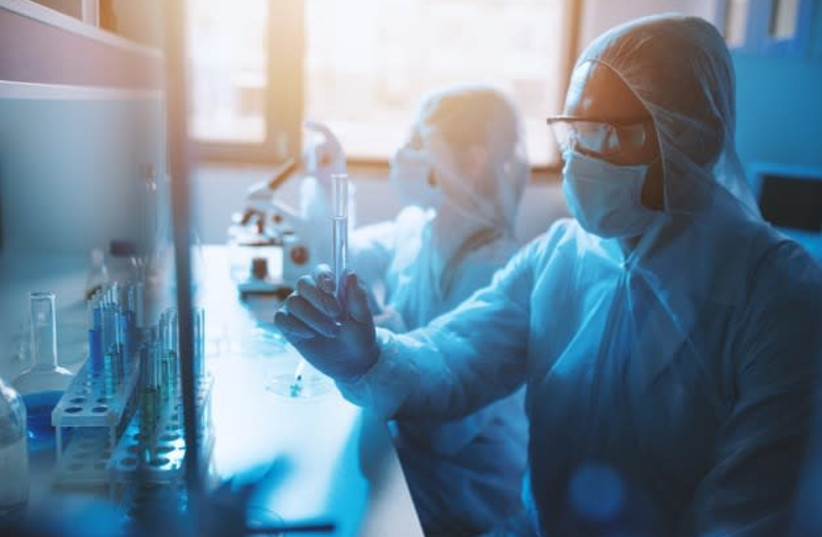As the coronavirus pandemic continues to plague the entire world, testing for COVID-19 is essential. However, the availability of tests is a large problem in many places, whether due to cost or availability of testing equipment and personnel.
But a newly developed test may solve this problem: It's cheap, effective and fits into a single backpack.
Developed by scientists at Queen Mary University of London and described in a study published in the open-access, peer-reviewed academic journal PLOS ONE, the kit is an ideal option for remote areas in lower socio-economic areas, where trained personnel and properly-equipped labs are few and far between.
The kit is not based on a PCR test, the most commonly used test for COVID-19. Rather, it is based on a Loop-mediated Isothermal Amplification (LAMP) test, a widely accepted alternative with similar sensitivity.
The LAMP test has several advantages over the PCR test. For one thing, it doesn't need temperature cycling, and as such can be done with less equipment. It is also less invasive. Unlike the PCR tests, which require a nasal swab that can be extremely uncomfortable, the LAMP test only needs saliva.

So what's the problem with LAMP tests? If they're so effective, why aren't they more widely used?
While LAMP tests are commercially available in many places, they are very expensive. To illustrate, the on-site "fly-safe" LAMP tests at London's Heathrow airport cost £85, which is around $118. Then there is all the equipment to consider. In order to process the results, they usually need high-value tools that would be impractical for poorer, remote locations or at someone's own home.
But this new backpack-sized LAMP test is different.
Aside from the test itself (which, when sold in bulk to testing companies, can cost around $7), there are two micropipettes that cost $20, cheap items like a thermos and a thermometer and, the most expensive part, a high-performance electronic centrifuge. Dubbed the CentriDrive, it is made of recycled computer hard drives and costs $28.
The CentriDrive is the most important part, and while it seems cobbled together, it is something whose viability has been proven. Already, UK high schools have used it to demonstrate DNA separation.
The centrifuge is also easy and cheap to make, requiring no specialized equipment but only a soldering iron and a T6 screwdriver.
With all the factors taken into account, this testing kit will cost just $51.
Further, it is also very easy to use and can be operated by minimally trained staff.
Testing would last 80 minutes for one sample or 90 minutes for six samples, and the consumables and reagents needed for each individual test would cost just $3.50 per sample.
“We are excited for the potential of this mobile lab to do COVID-19 tests and the possibility to democratize access to inexpensive testing technology," co-author Prof. Stoyan Smoukov said in a statement. "It is made possible by our philosophy of creating low-cost instruments whenever possible from advances in electronics, or existing instruments."
This backpack-sized kit has more potential beyond just testing for COVID-19, however, because it can also change how we use electronics waste and find ways to make all tests more accessible.
“Reuse is a high-value option for energy and materials sustainability, and we are glad that rather than exporting electronics waste to developing countries, we can export ways to empower people and turn waste computer hard drives into a centrifuge,” Smoukov explained.
“The COVID-19 test is a timely application, but we also believe with this CentriDrive kit, people could perform a large array of routine blood and urine tests, providing a centrifuge away from central hospital facilities.”
